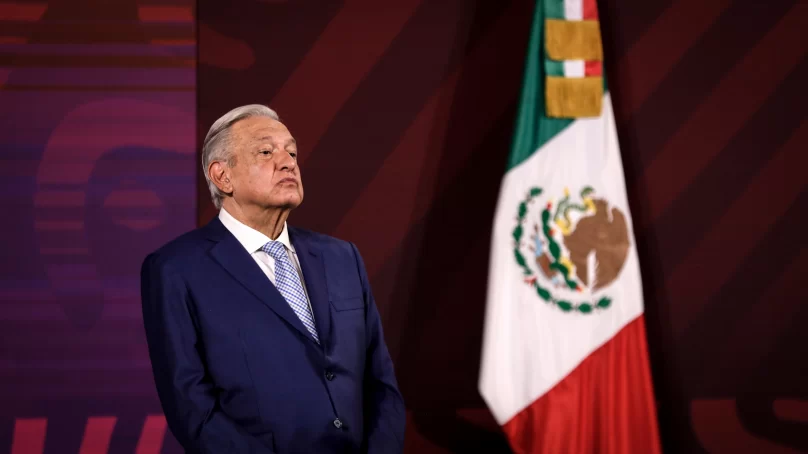
Despite his focus on social programmes spending, Mexican President Andrés Manuel López Obrador continues to acquiesce to the US government’s demand for migration enforcement, at much risk to migrants and asylum-seekers, intelligence leaks show
In 2018, the Mexican government created the National Guard – replacing the Mexican Federal Police, a force historically plagued with corruption – and later tasked it with stopping migrants from traveling north.
President López Obrador’s government also readily agreed to Remain in Mexico, a policy that forced asylum-seekers to wait in Mexico until their day in court – risking kidnapping, extortion, rape, torture and death – and accepted migrants expelled from the US under Title 42, a Trump-era policy that allowed US officials to turn away asylum-seekers to supposedly prevent the spread of Covid-19.
President Joe Biden kept Title 42 in place for the first three years of his presidency, finally lifting it this month.
Meanwhile, López Obrador’s investment in social programmes could also be seen as a way to curb migration, even if the US doesn’t see it that way.
“What is most striking is they’re not linking social spending to migration,” said Stephanie Leutert, the director of the Central America and Mexico Policy Initiative at the University of Texas at Austin, referring to the Director of National Intelligence document. “They’re not thinking about the many Mexican migrants who still have to leave because of a lack of security in parts of the country, but also a lack of development and lack of opportunity.”
Leutert speculates the Director of National Intelligence’s frustration could be toward the Mexican government’s meagre funding of refugee programmes and minimal attempts to root out corruption within the migration enforcement apparatus and the trafficking networks. Former ambassador Wayne agrees.
“Would it be better if they invested more in their refugee and migration services? Yes,” said Wayne. “So, it is certainly true that there’s room for more investment in their whole migration services and how they handle this.”
As the fentanyl epidemic continues to ravage the US, with nearly 71,000 overdoses in 2021 alone, the US government wants Mexico to more aggressively combat criminal and narcotrafficking organisations.
In 2006, when the Mexican drug war was launched, the Mexican government deployed the military to the streets to combat organised crime. The US agencies played a leading role in operations against criminal groups and also supplied weapons and training to Mexican forces.
López Obrador ran on a campaign to reduce the country’s militarisation and declared the Mérida Initiative, a 2008 security agreement, dead. In 2021, however, the Biden administration and the Mexican government signed a new security agreement called the Bicentennial Framework, similar to the Mérida Initiative.
Still, López Obrador has indeed limited US security involvement in Mexico. In 2021, he did away with the leading unit that was trained by, and collaborated with, the US Drug Enforcement Administration. The dissolution of the Sensitive Investigative Unit, which was part of the Mexican Federal Police, was a major blow to the bilateral security cooperation.
The Mexican Congress also significantly limited the Drug Enforcement Administration and other agencies’ operations in Mexico after the attempted arrest and prosecution of the former secretary of national defence. The reduction in bilateral security collaboration has led Republican representatives to call for US military intervention in Mexico to combat cartels and to designate them as terrorist organisations.
Under López Obrador, the Mexican government has also given a lot more power to the Mexican armed forces, which have historically been plagued with allegations of corruption and human rights abuses. The armed forces are now in charge of airports, hospital construction and other civilian institutions, along with major infrastructure projects.
Last fall, the National Guard, which was supposed to be under civilian control, was integrated into the military under the secretary of national defence. It was a significant step forward toward the further militarization of the country.
“The impression I have is that for many years, the bilateral cooperation between the US and Mexico prioritized the interests of the US”.
Violence in Mexico, meanwhile, continues to soar, in part a consequence of arms trafficking from the US to Mexico.
“The impression I have is that for many years, the bilateral cooperation between the US and Mexico prioritised the interests of the US. It prioritised that drugs do not reach the US,” Pérez Ricart said. Yet the US has offered little to address Mexico’s concerns, such as the flow of weapons into the country. “This is called ‘cooperation?’”
- The Intercept report











